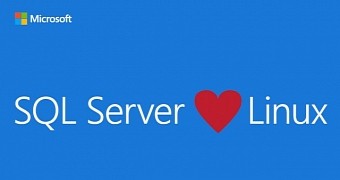After unveiling last month that its Microsoft Azure cloud hosting service now offers support for the powerful Red Hat Enterprise Linux operating system, Microsoft today announces plans to bring SQL Server to Linux.
The breaking news story has been covered by almost all technology websites today, as Microsoft's Scott Guthrie was excited to share with us the first details of the company's plans to bring its famous Microsoft SQL Server relational database management system (RDBMS) to Linux kernel-based operating systems.
According to Mr. Guthrie, Microsoft's long-term plan is to enable SQL Server to produce a steady data platform across GNU/Linux and Microsoft Windows Server operating systems, but today they are releasing a private preview to early adopters and developers interested in testing the technology.
"Today I’m excited to announce our plans to bring SQL Server to Linux as well," said Scott Guthrie, executive vice president, Cloud and Enterprise Group at Microsoft. "This will enable SQL Server to deliver a consistent data platform across Windows Server and Linux, as well as on-premises and cloud."
Microsoft SQL Server for Linux coming mid-2017
By enabling its SQL Server relational database to support Linux kernel-based operating system, Microsoft will provide customers with greater flexibility in their data solution, along with best-in-class security, industry-leading total cost of ownership (TCO), hybrid cloud innovations, as well as mission-critical performance.
Please note that the full implementation of SQL Server support for Linux will be available sometime in mid-2017, but until then we hope to see more news from Microsoft on their open-source ambitions. Canonical are also working with the Redmond company to bring SQL Server to Ubuntu Linux.
"We are delighted to be working with Microsoft as it brings SQL Server to Linux,” said Mark Shuttleworth, founder of Canonical and Ubuntu. “Customers are already taking advantage of Azure Data Lake services on Ubuntu, and now developers will be able to build modern applications that utilize SQL Server’s enterprise capabilities."

 14 DAY TRIAL //
14 DAY TRIAL //